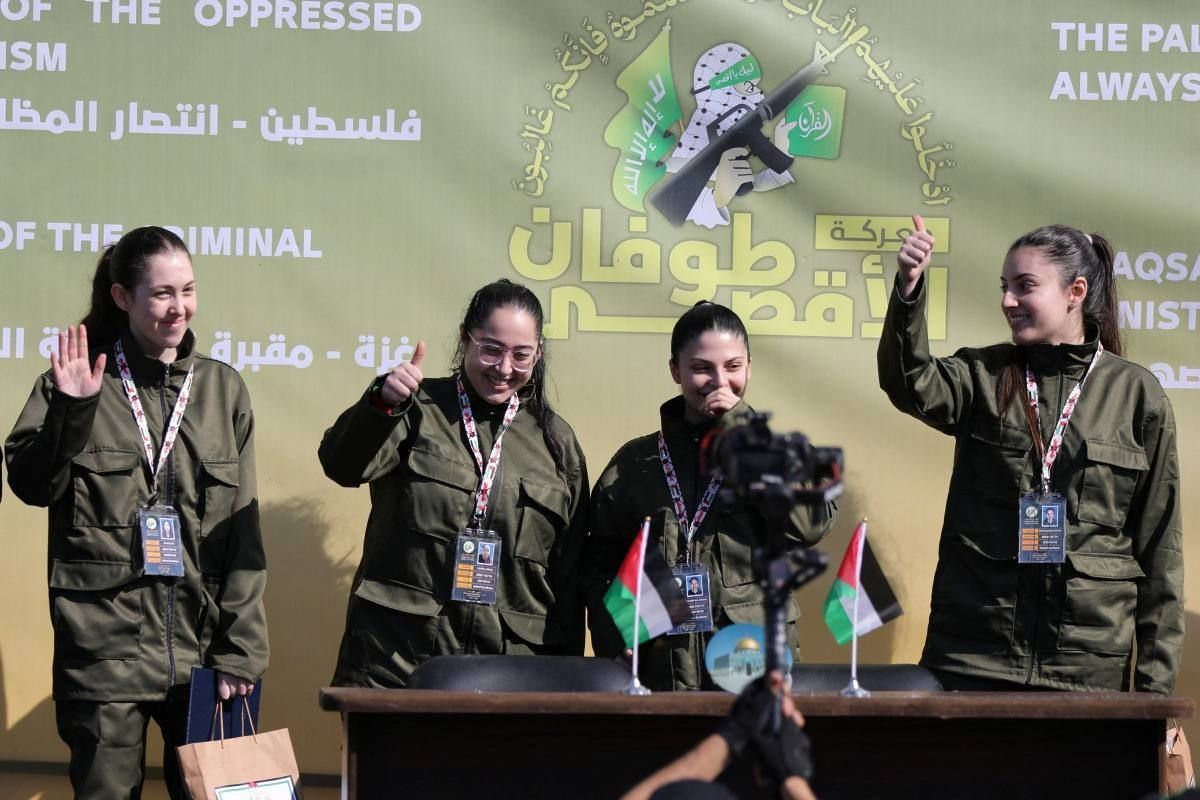Released hostages reveal that nobody came to help them, while their tormentors feasted on food provided by the UN and UNWRA. The BBC has been accused of editing footage in order to downplay the treatment endured by the Israeli hostages.
By HEART staff
Their coverage also ignores the ineffectiveness of international organisations like the Red Cross and the misuse of food aid, known to be routinely stolen by Hamas.
Released hostage and now widower Eli Sharabi, 53, was kept tightly chained and starved for 491 days by his Hamas captors. On his release he weighed just 44kg. In March he was able to give his testimony before the UN Security Council, detailing the horrors he endured. Kidnapped from Kibbutz Be’eri on 7 October while defending his community, his life was shattered in an instant. Over 100 terrorists celebrated as they carried him into Gaza. As the terrorists transported him, he encountered mobs of civilians cheering his captors and attempting to lynch him at the border. “I was their trophy.”
For over a year, he was held underground, constantly chained, starved, beaten, and humiliated. “The chains they kept me in tore into my skin from the moment I entered to the moment I was released. I was treated worse than an animal.” Sharabi also endured watching Hamas terrorists eating “like kings” in front of the starving hostages. Hamas brought dozens of food boxes marked UN and UNWRA down to the tunnels and ate their meals in front of him, denying him food and water.
“Begging became what I did – begging for food, for water, to go to the bathroom.”
Sharabi criticised the absence of humanitarian agencies. “Where was the Red Cross? Where was the United Nations?” He also witnessed the complicity of Gaza civilians, noting, “They saw our suffering and cheered our kidnappers. They were definitely involved.” Sharabi clung to hope despite the torment, only to learn upon his release that his British-born wife Leanne and daughters Noya and Yahel had been murdered on 7 October:“I didn’t know I should have said goodbye forever,” he said.
To further torment him, Hamas showed him a picture of his brother Yossi, whom they said was dead.
Outside the UN headquarters in New York, supporters gathered in solidarity. Sharabi’s brother, Sharon, expressed gratitude: “Thank you everybody for showing your support. It warms our hearts to know that wherever we are, we have people by our side.” Israeli Ambassador to the UN, Danny Danon stated, “While the UN continues its attacks on Israel, Eli will remind the world who we are fighting for. We will not stop until Hamas is defeated and every hostage returns home.”

The Red Cross’s inability to visit the hostages or take them medicine while they endured untreated wounds was emphasised by the testimony of one of the released young women hostages.
While being hung upside down and beaten, her abuser was laughing at the fact that his own daughter had been taken to Israel for medical treatment.
(Photo – A Hamas tunnel, headline from Jerusalem Post. Credit – Jerusalem Post.)
The three hostages who returned to Israel in February – Keith Siegel, Ofer Calderon and Yarden Bibas – indicate they were mistreated and abused by Hamas during their captivity. All three said they were moved frequently, not given sufficient amounts of food, and were mistreated by their captors. Calderon and Bibas said that in the first days of their captivity in Gaza, they were kept together in Khan Younis. They described being beaten, locked in cages, and physically and mentally abused for many days.
As with Siegel, both Calderon and Bibas were moved frequently, spending some of their time above ground in houses, and other times being kept in Hamas tunnels under Gaza.


